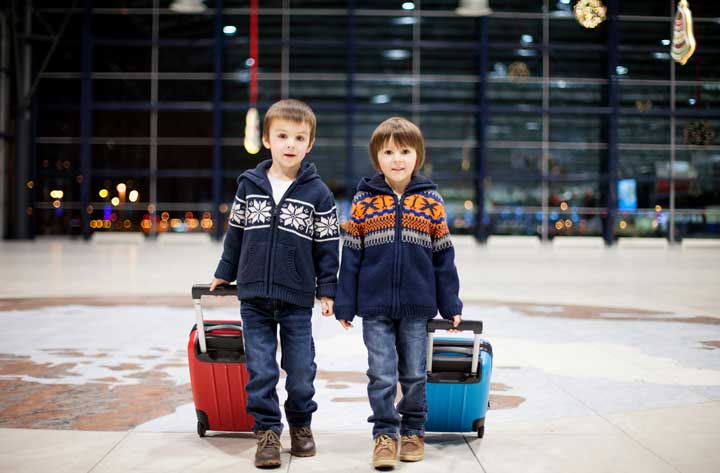Solo travel is one of the most rewarding and liberating experiences a person can have. The freedom to explore new places, meet different people, and engage with various cultures on your terms creates lasting memories. However, traveling alone also comes with a set of unique challenges and safety considerations. Whether you’re embarking on a journey across continents or simply exploring a new city, taking the right precautions ensures your trip is as safe as it is exciting. Here are essential safety tips for solo travelers to consider when planning their adventure.
1. Research Your Destination Thoroughly
Before you step foot in a new country or city, take the time to learn about its culture, traditions, and potential safety risks. Doing this groundwork will prepare you for common scams, local laws, and areas you might want to avoid.
– Check travel advisories: Government websites often provide up-to-date information on security issues, travel restrictions, and health concerns. Visit your country’s foreign affairs or embassy site for relevant updates.
– Learn about local customs: Cultural norms vary widely, especially concerning attire, behavior, and interactions with others. Respecting these customs can help you blend in and avoid unwanted attention.
– Understand local transport: Whether it’s the bus system, ride-sharing apps, or metro routes, familiarize yourself with the safest modes of transportation. Avoid isolated or poorly lit areas at night.
2. Stay Connected
One of the most important aspects of solo travel safety is ensuring that people back home know where you are and how to reach you in case of an emergency. Keeping lines of communication open ensures peace of mind for both you and your loved ones.
– Share your itinerary: Provide a detailed itinerary with family or friends, including your accommodation details, travel routes, and key dates.
– Check in regularly: Set up a daily or periodic check-in schedule with someone you trust. Whether it’s a quick message or a video call, staying in touch is vital.
– Use location-sharing apps: Many smartphone apps allow real-time location sharing with trusted contacts. Consider using these when you’re moving between destinations or exploring unfamiliar areas.
3. Choose Safe Accommodations
Not all accommodations are created equal, especially when it comes to safety. Research your options carefully, considering factors like location, security features, and reviews from other solo travelers.
– Read reviews: Websites like TripAdvisor or Booking.com allow previous guests to leave detailed feedback on their experiences. Pay attention to comments about safety, staff behavior, and cleanliness.
– Opt for secure lodging: Choose accommodations with 24-hour security, front desk services, and secure access points like keycard systems or coded locks.
– Stay in well-populated areas: Lodging in busy neighborhoods or near tourist attractions often feels safer than accommodations in isolated or poorly lit areas.
4. Blend In with the Locals
One of the best ways to stay safe as a solo traveler is to avoid standing out too much. Acting like a local reduces the chances of being targeted by scams, pickpockets, or other criminals looking for easy prey.
– Dress appropriately: Take note of what locals wear, especially in conservative countries. Dressing modestly and appropriately helps you avoid unwanted attention.
– Walk with confidence: Even if you’re unsure of your surroundings, walking confidently and purposefully sends a message that you are not an easy target.
– Avoid showing valuables: Flashing expensive jewelry, electronics, or large amounts of cash can make you a target for theft. Keep your valuables hidden or, better yet, leave them at your accommodation.
5. Be Cautious with Your Belongings
Losing your passport, credit cards, or phone while traveling alone can quickly turn an enjoyable trip into a stressful ordeal. Take extra precautions to keep your belongings safe.
– Use a money belt or neck wallet: These discreet pouches allow you to store important items like your passport, cash, and credit cards under your clothing, making it harder for thieves to access them.
– Keep copies of important documents: Photocopy your passport, ID, and travel insurance and store them in a separate location from the originals. You can also store digital copies in cloud storage or email them to yourself for easy access.
– Secure your luggage: Use luggage locks and pack strategically, placing valuable items in hard-to-reach or less obvious compartments.
6. Trust Your Instincts
One of the most powerful tools you have while traveling alone is your intuition. If a situation feels off or makes you uncomfortable, don’t ignore that gut feeling.
– Leave if you feel unsafe: If you find yourself in an area that feels sketchy or uncomfortable, leave as quickly and calmly as possible. Trust your instincts to keep you out of potentially dangerous situations.
– Say no when necessary: Whether it’s a persistent street vendor or someone offering to show you around, don’t be afraid to assertively say “no” and walk away if something doesn’t feel right.
– Avoid risky situations: Staying out late in unfamiliar neighborhoods, accepting drinks from strangers, or walking alone at night increases the chances of encountering trouble.
7. Stay Informed About Health and Safety
Being physically healthy and prepared for emergencies is crucial when traveling solo. Always make sure you’re prepared for potential health risks or other emergencies.
– Carry a basic first-aid kit: Include items like band-aids, antiseptic wipes, pain relievers, and any necessary prescription medications. A small kit can be a lifesaver in remote locations.
– Know emergency numbers: Research the local emergency contact numbers before you arrive. These numbers may differ from your home country’s standard emergency services.
– Purchase travel insurance: Health problems, accidents, or lost luggage can be expensive and stressful. Investing in comprehensive travel insurance that covers medical care, trip cancellations, and theft is worth the peace of mind.
8. Limit Alcohol Consumption
While it’s tempting to let loose on vacation, excessive drinking can impair your judgment, making you vulnerable to theft, accidents, or worse.
– Know your limits: Keep alcohol consumption moderate and avoid drinking excessively, especially when you’re alone or in unfamiliar environments.
– Watch your drink: Always keep an eye on your beverage in public places to prevent someone from spiking it. Avoid accepting drinks from strangers unless you’re confident about the situation.
– Stay in control: Ensure that you remain aware of your surroundings and maintain control of your actions when socializing in bars, restaurants, or clubs.
9. Make Friends Wisely
Meeting people from different cultures and backgrounds is one of the highlights of solo travel. However, it’s essential to balance making connections with staying safe.
– Choose your company carefully: It’s fine to be sociable, but be cautious about who you trust. Not everyone you meet has good intentions.
– Meet in public places: If you decide to hang out with someone new, do so in public, well-populated locations. Avoid going to isolated places or accepting invitations to private residences.
– Share your plans with others: If you’re meeting new people, let someone know where you’ll be and who you’re meeting.
10. Stay Aware of Scams
Travel scams can happen anywhere, but they often target tourists, especially solo travelers. Staying alert and recognizing common scams can save you a lot of trouble.
– Be skeptical of overly helpful locals: While many people you meet will be genuinely kind, some might offer help with hidden motives, such as overcharging you or guiding you into a tourist trap.
– Double-check prices: Whether you’re hiring a taxi, paying for a meal, or booking an activity, verify prices in advance to avoid being overcharged.
– Avoid unsolicited offers: Be wary of unsolicited offers, especially from strangers on the street. Common scams involve being offered free tours, trinkets, or experiences, only to be asked for money later.
Conclusion
Solo travel is a deeply enriching experience that allows for personal growth, cultural exchange, and unparalleled adventure. By taking the necessary precautions, staying alert, and trusting your instincts, you can ensure that your journey remains safe and enjoyable. Travel confidently, knowing that the world is yours to explore, but always prioritize your safety. Happy traveling!



